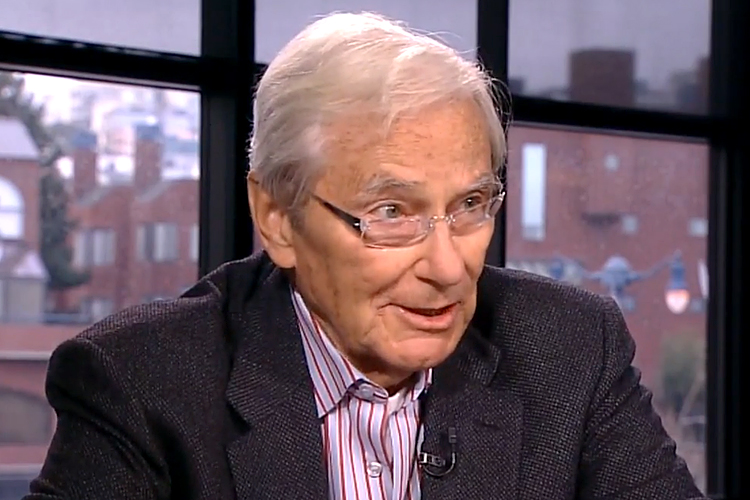A funny prank would have been for Barack Obama to announce at his State of the Union address last night that he was going to confiscate all of Tom Perkins’ money and redistribute it to the masses. I mean, no matter what the president actually said in his speech, that proposal is what Perkins was going to hear. If our plutocrats insist on being paranoid cranks obsessed with their persecution fantasies, I say we might as well persecute them.
You have presumably heard of Tom Perkins, though probably not before last Friday, despite the fact that he is one of the richest men in the country. It was on Friday that the Wall Street Journal published his remarkable letter to the editor, in which Perkins foresaw an anti-rich “Kristallnacht” on the near horizon. (The Kristallnacht comparison is especially odd considering that there are actual historical examples of state-sanctioned violence and destruction of property directed against elites. Predicting a progressive “Reign of Terror” would’ve been marginally less idiotic, if nearly as hyperbolic.) Perkins, who once killed someone with his yacht, was invited to apologize for his insensitive comments in an interview with Bloomberg, a finance media company owned by and named for one of his fellow plutocrats, but he decided instead to wholly embrace the caricature of the paranoid rich kook.
When you remove the always ill-advised Nazi analogy, Perkins’ comments are indistinguishable from the sorts of things hedge fund managers and venture capitalists and executives say on CNBC literally every day. As I, and as Josh Marshall and Joshua Green have written, the combination of the financial crash and the election of Barack Obama made a generation of billionaires lose their minds. The Perkins worldview — that the rich are under siege, that any and all government efforts to make “market outcomes” fairer represent tyranny and threaten to become actual atrocities, and that the modern Democratic Party is led not by well-off neoliberals but by frothing revolutionary leftists — is to America’s ultra-wealthy what birtherism is to rank-and-file right-wingers: a comforting paranoid fantasy that facts and reason cannot possibly hope to dispel.
One question raised by Matt Yglesias is why anyone bothers listening to deluded billionaires. People like Tom Perkins are quite good at making a lot of money, but not exactly experts in other fields. Indeed, the modern American plutocrat rarely wastes an opportunity to expose his ignorance of history, political science and even basic mainstream economics. Numerous authors have become quite successful by making a living out of explaining science and world affairs to the executive class in language so simple that a child could grasp the basic points. Despite that ignorance, there is an entire industry built around soliciting the opinions of the wealthy on subjects unrelated to their wealth. (Some media companies see this as the prayed-for replacement for print subscriptions and advertising dollars, and have reoriented their business around conferences and similar rich-splaining events.)
But we listen to their opinions, no matter how stupid they are, because our elected officials listen to their opinions, and their jobs depend on not recognizing or acknowledging how stupid they are. It is impossible to get elected president without the backing of a cadre of multimillionaires. It is nearly impossible to get elected to the U.S. Senate without a couple in your corner. The multimillionaires and billionaires fund every effective political interest group in the country, from gun rights to gay rights groups. What makes the wealthy persecution fantasy so risible is that our political class is responsive almost solely to the priorities and views of the rich, but the fantasy serves a purpose: It prevents Congress from actually acting to address economic inequity. As long as the rich perceive even ineffectual social opprobrium as an existential threat, politicians will be too terrified to advance any actual redistributionist agenda. Our best hope for achieving anything on income inequality under this political system, in this climate, might be to somehow convince rich people that it’s their idea, and that we all love and admire them a great deal for coming up with it.

